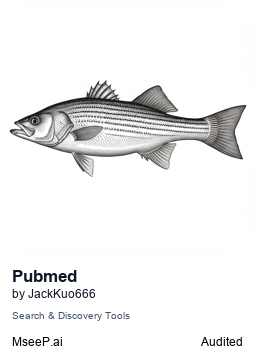About
The PubMed MCP Server bridges AI assistants with the PubMed database, enabling keyword and advanced searches, metadata retrieval, PDF downloads, and deep paper analysis via the Model Context Protocol.
Capabilities

The PubMed MCP Server bridges the gap between AI assistants and the world‑wide biomedical literature housed on PubMed. By exposing a set of MCP tools, it lets models such as Claude perform precise literature searches, retrieve article metadata, and even attempt to download full‑text PDFs—all through a single, consistent interface. This eliminates the need for developers to write custom API wrappers or parse HTML pages, saving time and reducing maintenance overhead.
At its core, the server offers a search capability that supports both simple keyword queries and complex advanced searches with multiple parameters. Once a search returns a list of PMIDs, the assistant can use dedicated tools to pull detailed metadata—including title, authors, journal, publication date, abstract, and MeSH terms—directly from PubMed’s E‑Utilities. For researchers needing deeper insight, the server also provides a deep paper analysis tool that can ingest an article’s content and generate structured summaries, highlight key findings, or extract methodological details.
Developers can integrate the PubMed MCP Server into their AI workflows in several ways. For example, a clinical decision support system can query the server for the latest evidence on a drug, retrieve metadata to display citation details, and then ask the assistant to summarize safety signals. A research chatbot can let users search for recent papers on a specific technique, pull the metadata, and automatically generate annotated reading lists. Because the server follows the MCP specification, any client that understands MCP—Claude Desktop, Cursor, Windsurf, or CLine—can consume its tools without additional plumbing.
Unique advantages of this server include fast, batched retrieval that reduces network latency compared to individual REST calls, and a built‑in PDF download attempt that leverages open access links when available. The inclusion of a set of research prompts further streamlines common tasks, allowing developers to offload complex natural‑language queries to the assistant and let it orchestrate multiple tool calls automatically.
In short, the PubMed MCP Server empowers AI assistants to become first‑class literature explorers. It delivers a ready‑to‑use, protocol‑driven interface that abstracts the intricacies of PubMed’s API, enabling developers to focus on higher‑level reasoning and user experience while still providing instant access to the most current biomedical research.
Related Servers
MarkItDown MCP Server
Convert documents to Markdown for LLMs quickly and accurately
Context7 MCP
Real‑time, version‑specific code docs for LLMs
Playwright MCP
Browser automation via structured accessibility trees
BlenderMCP
Claude AI meets Blender for instant 3D creation
Pydantic AI
Build GenAI agents with Pydantic validation and observability
Chrome DevTools MCP
AI-powered Chrome automation and debugging
Weekly Views
Server Health
Information
Explore More Servers
OutlookMCPServer
Claude Desktop access to Microsoft 365 mail, calendar and files
Nutrient DWS MCP Server
AI‑powered PDF processing via Nutrient DWS API
Mcp Imagen Server
Casual image generation with fal.ai integration
Shadcn UI MCP Server
Fast access to shadcn/ui v4 components across multiple frameworks
MCP All
Unified MCP Server for Spring AI
MCP libSQL
Secure, TypeScript‑powered libSQL access via MCP